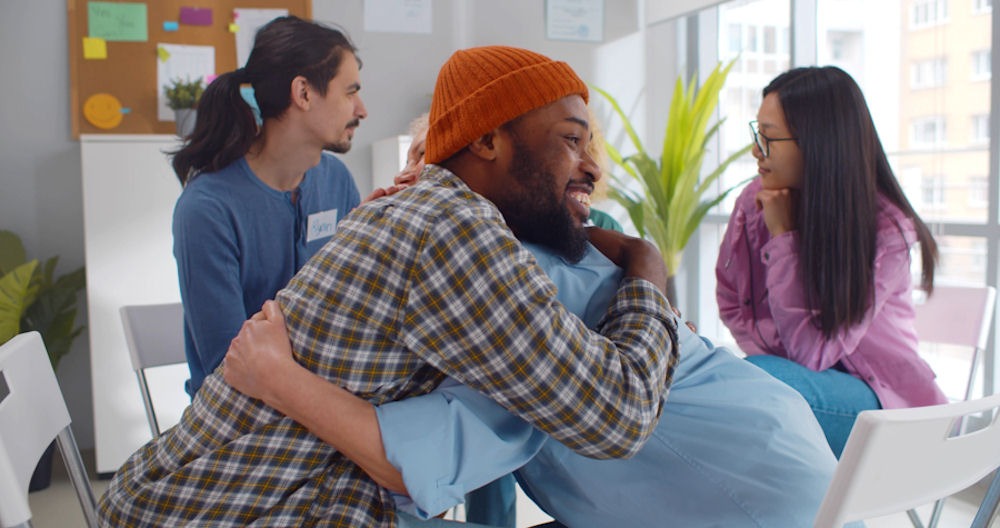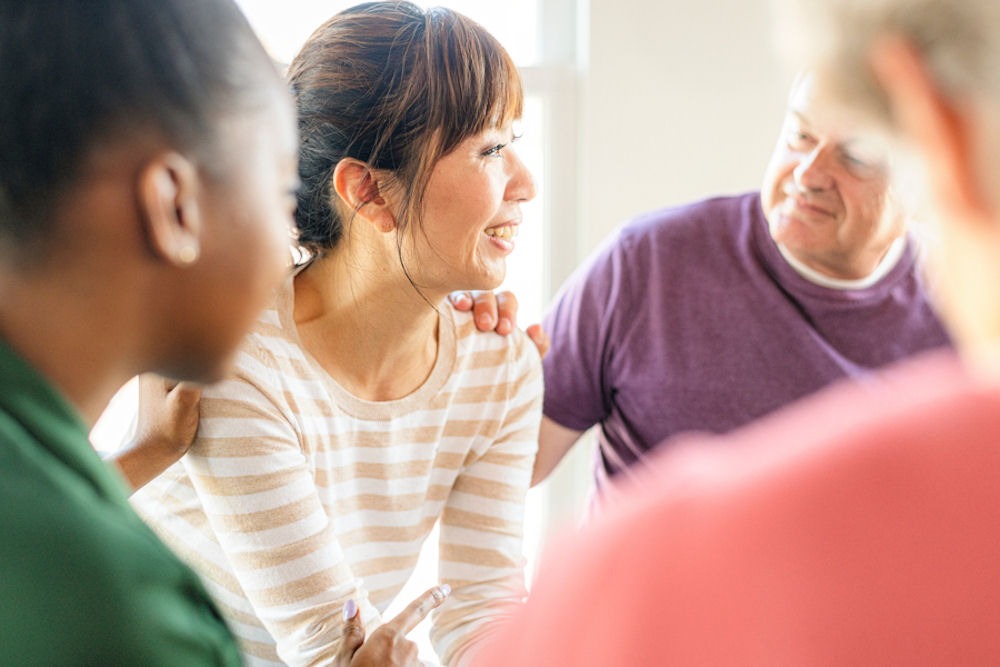A Guide on How to Make Sober Friends Once You Quit Drinking
Quitting drinking is a significant milestone in regaining control over your health, well-being, and overall life. As you take this important step toward sobriety, it’s natural to face new challenges, particularly when it comes to navigating your social life and forming meaningful connections without the presence of alcohol. For many, the idea of building new friendships or maintaining relationships without the social lubricant of drinking can feel daunting. You might wonder how to interact with others without the shared experience of drinking or how to meet people who understand and support your journey.
In this guide, we’ll explore what sobriety truly means, its vital role in personal recovery, and how recovery meetings and programs can serve as addiction resources in helping you build a strong, sober social network. With the right approach and mindset, making sober friends can be one of the most rewarding aspects of your recovery journey.

Sobriety is the state of living without the use of alcohol or other substances that can alter one’s mental or physical state. For many individuals, the decision to embrace sobriety comes after recognizing the detrimental effects alcohol or substance use has had on their health, relationships, and overall life. Sobriety means choosing to live a life free from addiction, and it often requires long-term commitment, self-awareness, and effort.
The benefits of sobriety are vast. For those who have struggled with alcohol addiction or dependence, sobriety can represent a fresh start and the beginning of a new chapter in life. It is not merely about abstaining from drinking but about creating a life in which alcohol no longer controls your decisions, emotions, or relationships. Embracing sobriety can lead to improved mental and physical health, stronger relationships, and a renewed sense of purpose.
Why is Sobriety Important to an Individual’s Recovery?
Sobriety is crucial to an individual’s recovery for several reasons:
Alcohol and other substances can take a heavy toll on the body. Chronic drinking can lead to liver disease, heart problems, and a weakened immune system. By committing to sobriety, individuals give their bodies the chance to heal, recover, and function optimally.
Sobriety also plays an important role in improving mental health. Many people who struggle with alcohol use disorder often experience symptoms of anxiety and addiction, depression, and other mental health conditions. By eliminating alcohol from their lives, individuals have a better chance of managing their mental health and achieving emotional stability.
Alcohol can severely strain relationships with family, friends, and romantic partners. Sobriety helps individuals rebuild trust, repair damaged relationships, and form stronger emotional connections with those around them. Healthy relationships are an important part of recovery.
Sobriety allows individuals to build a new lifestyle that is free from the grip of addiction. Without alcohol influencing their daily decisions, those in recovery have the freedom to pursue hobbies, goals, and aspirations that bring them fulfillment and purpose.
Choosing sobriety is an empowering decision. It signifies a commitment to self-improvement, growth, and taking control of one’s destiny. Sobriety gives individuals the opportunity to rediscover their passions, focus on personal development, and build a future free of dependence.
Sobriety is key to breaking the cycle of addiction. Alcohol and substance abuse often create a harmful cycle, where substances are used to cope with stress or pain, but only worsen the problem. Choosing sobriety helps individuals break free from this cycle, address underlying issues, and develop healthier ways to cope, supporting long-term recovery.
How to Make Sober Friends Once You Quit Drinking?
While meeting new people can feel intimidating, especially if past social circles revolved around drinking, there are many ways to create a supportive network with those who share similar values and goals.
One of the best places to meet sober friends is at recovery meetings. Organizations such as Alcoholics Anonymous (AA), Narcotics Anonymous (NA), and other 12-step programs provide safe spaces where individuals can come together to share their experiences, strength, and hope. These meetings foster a sense of community and support, which is vital for anyone in recovery.
At recovery meetings, you will meet people who understand your journey and are on a similar path. Many people who attend these meetings have made sobriety a priority in their lives, and they are committed to staying sober and helping others achieve the same goal. Over time, the friendships formed in these meetings can become some of the most supportive and enduring relationships of your recovery.
In addition to attending recovery meetings, consider joining a sober support group. These groups can be found through local community centers, mental health organizations, or recovery-focused websites. Many sober support groups are designed to provide a space where individuals can meet regularly to discuss their recovery journeys, engage in group activities, and offer support to one another.
These support groups provide a structured environment for making sober friends, where everyone is focused on healing and staying sober. Whether you are participating in group discussions, volunteer events, or social outings, you will have the opportunity to form lasting connections with people who understand your experiences.
Once you quit drinking, it’s important to seek out social activities that don’t revolve around alcohol. There are countless sober events, meetups, and activities designed for individuals in recovery. For example, you might participate in sober hikes, fitness classes, book clubs, or community service projects. Engaging in activities that interest you is a great way to meet like-minded people and expand your sober social circle.
Websites like Meetup.com and local community centers often offer listings for sober events and activities. These events may be specifically tailored to those in recovery, or they may be open to anyone sober. Either way, they provide a fantastic opportunity to meet new people who share your commitment to living a sober life.
In today’s digital world, making sober friends is not limited to in-person interactions. There is a wide range of online forums, social media groups, and apps dedicated to helping individuals in recovery connect. These online spaces can be a great way to share your experiences, receive advice, and form friendships with others who are on a similar path.
For example, Facebook groups, Reddit threads, and online sober communities offer a supportive environment where individuals in recovery can communicate, share stories, and make new friends. Online connections can be especially valuable for those who may not have access to in-person support groups or sober events in their local area.
Volunteering is a fantastic way to meet new people while giving back to your community. Many recovery-focused organizations, charities, and nonprofit groups offer volunteer opportunities that allow individuals in recovery to participate in meaningful activities and form new friendships. Whether you’re volunteering at a food bank, helping out at a local shelter, or assisting with community outreach programs, you will have the chance to meet individuals who share your values of helping others and staying sober.
While sobriety is an important foundation for your friendships, it’s also important to find people who share your interests and passions. By participating in activities such as fitness classes, art workshops, book clubs, or cooking classes, you can meet others who are interested in the same things you are. Building friendships based on shared hobbies and passions will help ensure that your relationships are not solely defined by sobriety but are instead holistic and supportive.
Building new friendships takes time and patience. Stay open-minded, kind, and authentic, and trust that meaningful connections will grow over time. The right friends will value you and support your sobriety journey.
Recovery Meetings and Their Role in Sobriety
Recovery meetings, such as those offered through Alcoholics Anonymous (AA) or Narcotics Anonymous (NA), are crucial to maintaining sobriety. These meetings provide a safe and supportive space for individuals to discuss their experiences with addiction, share their struggles and triumphs, and offer encouragement to others. The importance of recovery meetings in sobriety cannot be overstated, as they:
Regular attendance at recovery meetings helps individuals establish a routine and provides structure in their lives. The consistency of attending meetings and following the 12-step process can help individuals stay focused on their recovery goals.
Recovery meetings connect individuals who are going through similar experiences. The peer support provided by these meetings can help reduce feelings of isolation and give individuals a sense of belonging.
Meetings encourage accountability, which is essential for maintaining sobriety. Members often check in with one another, share their progress, and support each other in staying on track with their sobriety goals.
Recovery meetings offer a platform for individuals to reflect on their experiences, learn from others, and continue their journey toward healing and personal growth.
Recovery meetings provide a natural environment for making sober friends. Over time, you will form strong bonds with others on a similar journey who can support you through the ups and downs of sobriety.
Wisconsin Recovery Institute Can Help You Make Sober Friends During Sobriety
At Wisconsin Recovery Institute, we are dedicated to helping individuals in recovery find the support they need to lead fulfilling, sober lives. We offer a wide range of services designed to support individuals in their recovery journey, including:
- Sober Support Groups: Connect with others in recovery, share experiences, and build friendships.
- Recovery Coaching: Personalized guidance to navigate sobriety and strengthen support networks.
- Educational Resources: Learn to manage triggers, understand recovery, and stay goal-focused.
- Social Events: Join sober activities to meet new people and build meaningful connections.
By participating in our programs, individuals can access a network of sober friends and gain the tools they need to maintain their sobriety long-term. Reach out to us today to get started.


